ALL Institute: Assisting Living & Learning
ToggleHannah Casey
PhD - Department of Psychology
My research focuses on improving supported decision-making services for adults with intellectual disabilities. Previous research has shown that decision-making is central to self-determination, empowerment, and social inclusion for people with ID. There is growing recognition of the need for effective supports to enable people with ID to be leaders in decision-making in their own lives, with as much or as little support as they themselves request. This is reflected in the Assisted Decision-Making (Capacity) Act, 2015, which provides a statutory framework to adults experiencing difficulties with decision-making. However, little information or guidance has been given to adults with ID or their support networks as to how best to implement this law in their daily lives. My aim with this PhD project is to fill this gap by creating guidelines for supported decision-making for adults with ID, their families and service providers in Ireland based on what they themselves feel is absent from current support services.
Harry Chikasamba
PhD - School of Law and Criminology
I am a PhD student researching on disability, international development policy and practice, and their intersection under the “Monitoring Organisations of Persons with Disabilities (OPDs) Participation in Development Programmes and Policies” project. My PhD employs quantitative methods to explore progress in advancing the rights of persons with disabilities to participate in decisions that concern them; and contributes to development of a global OPD Participation Index, and feeds into the International Disability Alliance (IDA) global and regional level advocacy to promote the right to meaningful participation of OPDs in decision-making as an essential step towards reflecting their priorities and advancing all human rights for all persons with disabilities.
I hold an LLM in International Law from the University of Leeds in the UK, and my research interests are in disability law and policy, intersectionality theory, human rights, social justice, and critical understanding of how law shapes sustainable development policy and practice.
Outside academia, I am a Human Rights Policy Advisor at the World Blind Union (WBU) where I support, consolidate and develop WBU’s global work related to human rights advocacy and policy, with a primary focus on CRPD compliance across implementation of the global development and humanitarian agendas, viz the 2030 Global Agenda for Sustainable Development, Paris Agreement on Climate Change, Sendai Framework for Disaster Risk Reduction, the Charter for Inclusion of Persons with Disabilities in Humanitarian Action, and the Marrakesh Treaty.
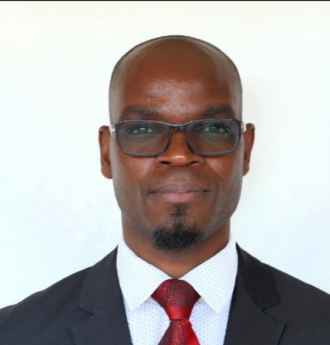
María Fernández De Ossó Fuentes
PhD - School of Business
María's research focuses on understanding digital placemaking practices and their effects on mental health and wellbeing of citizens when engaging with green and blue spaces
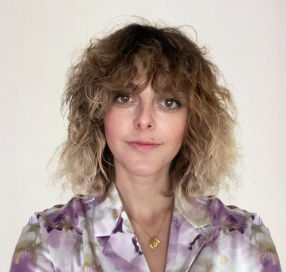
Maria Gialama
PhD - Department of PsychologyMaria is a PhD scholar and Graduate Teaching Assistant at Maynooth University’s Department of Psychology.
She obtained a BSc (Hons) degree in Psychology from the Aristotle University of Thessaloniki (AUTh) in Greece, followed by a MSc in Health Psychology from the University of Bath, UK and a Postgraduate Diploma in Psychotherapy from the Hellenic Institute of Psychology and Health, Thessaloniki (Greece).
Maria has extensive professional experience in academia, hospital settings and community-based NGOs, having worked with vulnerable and disadvantaged populations, including older people with cognitive impairments/neurodegenerative diseases (e.g. Royal National Hospital for Rheumatic Diseases, NHS), homeless, impoverished and long-term unemployed people (in a project co-funded by the European Union under the European Social Fund), as well as unaccompanied minors/refugees/migrants and asylum seekers (Project funded by European Commission- Civil Protection and Humanitarian Aid and the Greek Ministry of Finance and Development). She has conducted high quality collaborative research at national and international level (including projects funded by the European Union) and has taught on several areas within psychology, research and counselling/psychotherapy in both Greek and British higher education institutions. Maria has also taken on multiple volunteering roles including Liaison Officer for UNESCO Learning City project, co-ordinator of numerous philanthropic/fundraising events to support those affected by the financial and the refugee crises in Greece and volunteer counsellor for young people and for older adults with health and mental health issues.
She is currently researching the development of a new and novel, mindfulness based art intervention for people with dementia and their caregivers - based on a unique combination of dance movement therapy (DMT) and mindfulness techniques. This intervention aims to promote meaningful engagement and improve the mood, quality of life and well-being of people at the early stages of dementia and their (primary) caregivers whilst also highlighting the role of arts/ arts therapies and mindfulness in promoting health/ mental health, wellbeing and social engagement.
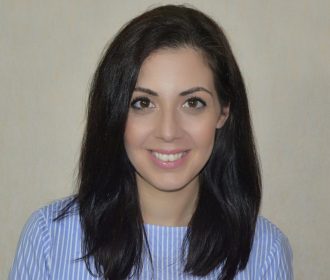
Isaiah Gitonga
PhD - Department of Psychology
My research focuses on exploring the impact of using digital technology among persons with visual impairment in low-income countries. World Health Organization (WHO) included some of the digital devices/products under the Priority Assistive Products List (APL) which its launched in May 2016. The importance of assistive technology is outlined within the United Nations Convention on the Rights of Persons with Disabilities. However, previous research has shown that access to these technologies is limited in low-and middle-income countries. This research seeks to better understand how digital technology affects persons with visual impairment in low-income settings.
Policy development:
Malawi’s National Medical Rehabilitation Policy (2020).
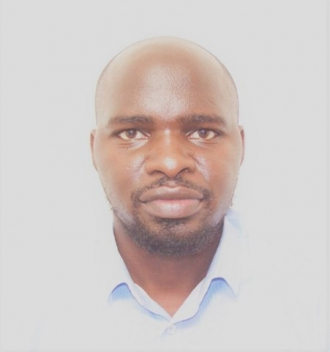
Jamie Howell
| MSc - Department of Psychology |  |
My research focuses on transgender individuals' expectations and experiences of transition-related healthcare. Transition related healthcare is defined as a medical intervention which aims to create an appearance congruent with one's gender identity and can include hormone replacement therapy and surgeries. This is an understudied area, with most existing research based in the USA. There are a number of differences between transition-related healthcare in the USA and in Ireland, such as the informed consent model (USA) vs. the psychiatric model (Ireland). My research aims to address the current gap in the literature by exploring expectations and experiences of transition-related healthcare in an Irish context.
Matthew McKenna
PhD - Department of Psychology
The potential of Assistive Technology (AT) to contribute to ‘de-institutionalisation’ in disability care for elderly persons and enhance independent living and autonomous decision-making is undeniably profound. This arguably assists modern societies to achieve greater compliance with contemporary international disability law and policy through psychosocial and technological symbiosis. My research intends to investigate and identify the challenges facing the mainstreaming of AT in the treatment of age-related disability. It also aims to develop a policy road-map for the intertwinement of service-user leadership, universal design and the integration of AT in disability care for the elderly. My project investigates the legal entitlements to access AT within the EU and assesses how AT is being provided and delivered in the care of elderly persons who suffer from age-related disabilities. There is a specific focus in this research on the extent to which AT is used for older persons with disabilities in contrast to other demographics.
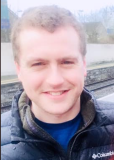
Yanet Morejon Hernandez
PhD - Department of Psychology
Assistive Technology (AT) is intended to preserve, promote, and enhance people’s well-being and performance in their daily lives. The process of AT adoption can be described as complex and multi-causal, involving the body, technological devices and psychological elements. My research focuses on the identity aspect of the use of AT among the elderly population. Previous studies have shown from older adults’ perspective how the AT use can sometimes be experienced as a threat to their identity and self-image. AT adoption can lead to conflicts in relation to whom the older adults are/ are becoming, and how they want to be and portray to family, friends and society. However, details on how these processes are experienced by elderly users, the positive and negatives effects on their rehabilitation and daily activities, and their coping mechanisms, remain understudied. This research aims to explore the role of identity in the use and misuse of AT among older adults from a person-centred approach, and a qualitative methodology as the framework.
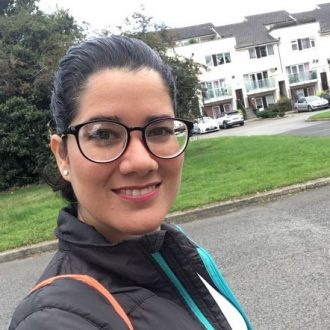
Cassandra Murphy
PhD- Department of Psychology
Cassandra is a PhD researcher with the H2020 project GoGreenRoutes. She completed her BA Joint Honours in Criminal Justice and Psychology (2018) and her MA Psychology (2019) at the University of Limerick. After graduation she spent time working as an assistant psychologist in disadvantaged areas of Limerick and conducting workshops with survivors of domestic abuse focusing on empowering people with what they have accessible to them.
Cassandra’s current research focuses on the human-nature relationships and more specifically the concept of nature connectedness. Recent advancements in urbanisation have limited green spaces in areas of dense populations despite WHO recommendations for everyone should live within a 5-minute walk of public greenspace. Connecting with natural spaces can improve individuals’ health and wellbeing so understanding how cities can facilitate this connection. Cassandra’s thesis is titles Nature Connectedness in the 21st Century and explores how those in nature deprived areas can connect with nature and what inhibits their ability to do so. Her research intends to develop the construct of Urban Nature Connectedness and work towards creating an accessible scale to measure this new construct.
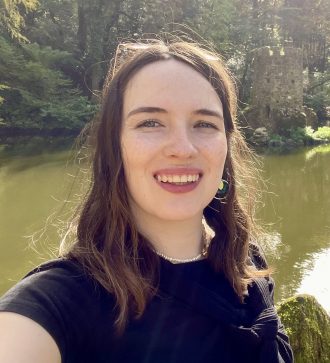
Joan O'Donnell
PhD - Department of Psychology
Enhancing multi-stakeholder capacity for social learning, is an integral part the development of techno-social solutions to civic engagement and learning between disabled populations, civil society and policy makers in designing sustainable communities in a complex interdependent world. My research focuses on exploring ways in which all citizens, including people with disabilities, can exercise their rights and be active members of their communities. It focuses on the design of virtual services in ways that can enhance dialogue and understanding, promote equality of access and participation and impact on the power imbalances often found in traditional service delivery models. A Systems Thinking approach, combined with embodied practices are used to explore alternative framings for engagement and shared learning.
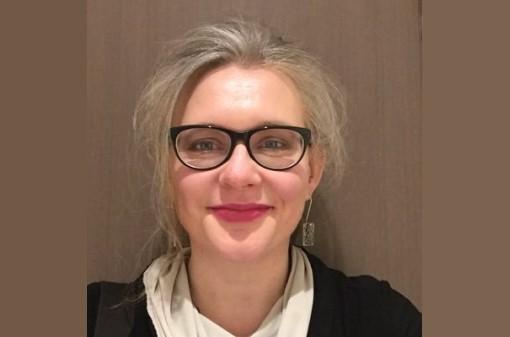
Iryna Tekuchova
PhD - School of Law and Criminology
Iryna is a PhD candidate within the project "Protecting the Right to Culture of Persons with Disabilities and Enhancing Cultural Diversity through European Union Law: Exploring New Paths - DANCING" funded by the European Research Council. Her research seeks to investigate the extent to which the rights of persons with disabilities are integrated within the EU External Action and how the 'global reach' of EU law impacts on the rights of people with disabilities outside the EU. In doing so, she will focus on the reach of EU law in the national legal systems of the Eastern Partnership countries, with cultural rights of persons with disabilities in Ukraine as a case study.
Iryna graduated from the University of Bremen with an LL.M Degree in "International and European Law". She has over five years of experience as an inclusion expert and consultant for Ukrainian state authorities, international and national civil society organizations. From 2021 she holds membership in the Advisory Panel on the Political Participation of Persons with Disabilities of the OSCE Office for Democratic Institutions and Human Rights.

Léa Urzel Francil
PhD - School of Law and Criminology
Léa is a PhD student with the DANCING research project. She holds an LL.B. from the University of Nantes (France) and studied European and International Law at the University of Helsinki (Finland). In 2018, she completed an LL.M. in International and Comparative Disability Law and Policy at the National University of Ireland, Galway. She carried out traineeships at the Office of the Special Rapporteur on the Rights of Persons with Disabilities, contributing to a chapter of "The UN Global Study on Children Deprived of Liberty" and at the NGO Humanity & Inclusion. Prior to starting her PhD studies, Léa also joined the European Commission's Directorate-General for Employment, Social Affairs and Inclusion in Brussels as a trainee. Thesis Title: Investigating the Disability Dimension of Cultural Production in the European Union
Her PhD research focuses on the disability dimension of cultural production in the European Union. It intends to investigate the dynamics involving cultural producers and consumers, which influence the participation of persons with disabilities in cultural life. In doing so, the research will address how disability features in the production of cultural goods and services, and the extent to which persons with disabilities are included in the production process. By considering both cultural producers in general and cultural producers with disabilities, it is intended to provide insights into the dynamics of cultural production at European and national level.
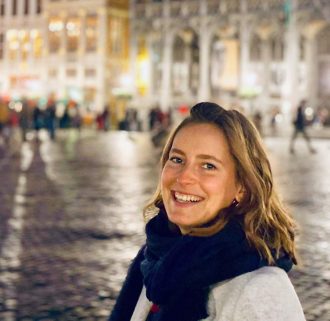
Angela Virciu
PhD - Department of Psychology
The research that I am currently carrying out focuses on the social integration of immigrants within the Irish workforce. More exactly, it looks at the role of wider social networks, also referred to as bridging social capital, in facilitating the social integration of Romanian immigrants within the Irish workforce.
Previous research has observed that immigrants from non-Western countries experience labour market disadvantages in Western countries, as well as lower levels of subjective wellbeing than the natives. Ireland’s immigrants have also been reported to experience lower levels of psychological wellbeing, and labour market disadvantages, like lower pay, lower employment rates and occupational positions. While, immigrants from Eastern European countries have been reported to experience discrimination at work, and are the least likely to occupy managerial/professional jobs in Ireland.
Bridging social capital has been observed to positively correlate with immigrants’ earnings, employment, and occupational status, to promote a sense of belonging to the wider society, and higher levels of life satisfaction in immigrant populations. Understanding the role of bridging social capital in the social integration of Romanian immigrants within the Irish workforce, could inform the formulation of recommendations aimed at aiding their integration, while the design could be used in future studies on wider immigrant populations or on Romanian immigrants living in other countries.
The effective integration of immigrants into the labour market is an important aspect of integration, because employment renders immigrants’ financial stability and facilitates their integration into society as a whole (Migrant Integration Strategy 2017-2020; Organisation for Economic Co-operation and Development (OECD), 2015).
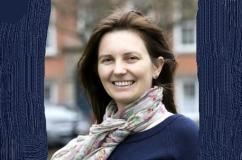
Holly Wescott
PhD - Department of Psychology
My research aims to better understand disability inclusion through case study analyses of country projects supported by the United Nations Partnership on the Rights of Persons with Disabilities (UNPRPD). The UNPRPD is a partnership programme engaging various UN agencies, local governments and civil society, particularly Disabled Person’s Organisations (DPOs). I use Pierre Bourdieu’s theory and methods to frame structural change as it reflects disability inclusion.

